How to use AI roleplays for sales onboarding: A step-by-step guide

Sales training is hard. It’s messy, repetitive, and too often detached from reality. Yet, it’s also one of the most critical factors in building a killer sales team.
Enter AI roleplays — a game-changer in onboarding that’s redefining how sales reps learn. Think of them as realistic, no-risk simulations where new hires sharpen their skills, get real-time feedback, and build confidence before ever talking to a customer.
AI roleplays don’t just make onboarding smoother — they work. They boost engagement, improve retention, and accelerate reps’ readiness to close deals. If your sales team feels undertrained or your onboarding process isn’t cutting it, you’re leaving growth on the table. The good news? This guide will show you how to flip that script.
Understanding AI roleplays for sales onboarding
AI roleplays are simulations powered by artificial intelligence. They mimic real-world sales interactions, allowing reps to practice conversations with a “customer” that reacts to their inputs. Imagine facing tough objections, stumbling, adjusting, and refining your approach — all without losing a deal.
Why does this matter? Because practice beats theory. According to Salesforce, 48% of sales reps who practiced with roleplays felt more prepared, while simulations increased confidence by 20%. Confidence leads to competence, and competence drives revenue.
Customization is the secret sauce. AI roleplays can be tailored to specific products, customer personas, and market strategies. You’re not just training; you’re preparing reps to sell in your world. Tools like the sales role play checklist help teams get precise, targeting specific skills to improve with each session.
Larry J.B. Robinson, CEO of the Robinson Group, nailed it: “Preparation is everything in sales.” AI roleplays make preparation frictionless, effective, and scalable.
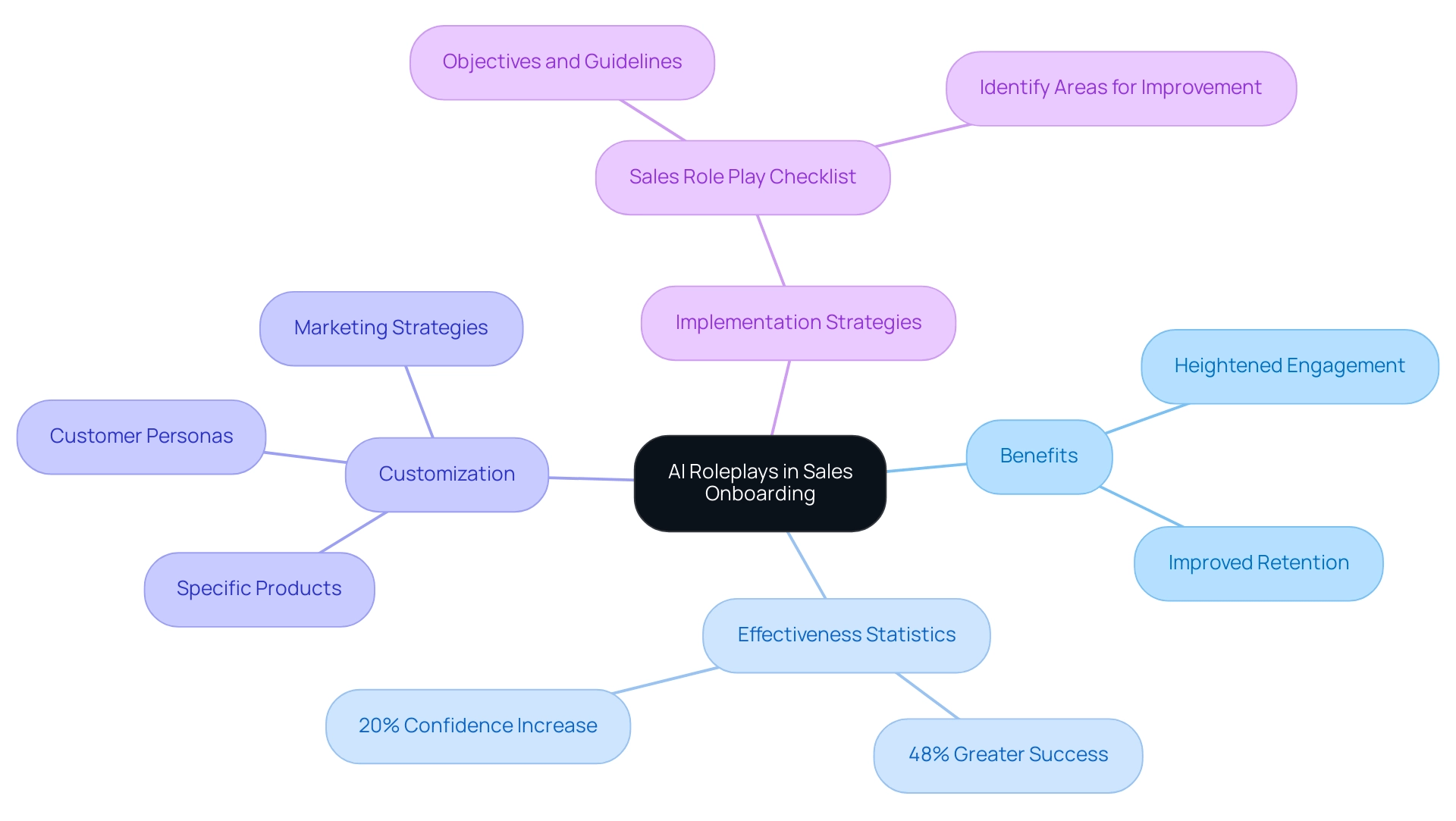
Step-by-step implementation of AI roleplays in sales training
Adopting AI roleplays is easier than you think. Here’s how to roll them out:
- Define clear objectives
What do you want new hires to master? Handling objections? Explaining product features? Start by identifying the skills your reps need most. This clarity ensures your training aligns with real-world challenges. - Pick the right platform
Not all AI roleplay tools are created equal. Look for platforms that offer customizable scenarios, detailed analytics, and instant feedback. According to surveys, 78% of companies using AI platforms saw measurable improvements in rep performance. - Design custom scenarios
One-size-fits-all doesn’t work here. Build roleplays that reflect your customers, products, and objections. Use data from real sales calls to script scenarios that mirror your market. Reps need to practice what they’ll actually face. - Integrate into your training flow
Don’t bolt AI roleplays onto your onboarding process — embed them. Schedule simulations right after key lessons to reinforce learning. AI roleplays prepare reps for reality, not just theory. - Measure and iterate
Use the platform’s analytics to track progress. Where are reps struggling? What scenarios trip them up? Offer feedback loops that highlight wins and pinpoint areas for improvement. At XYZ Corporation, reps who got consistent feedback improved their performance by 30%. - Refine continuously
Your market evolves, so your roleplays should too. Regularly update scenarios to reflect new products, strategies, and market conditions. A recent sales enablement study found that adaptive training content boosts effectiveness by 25%.
Similarly, Dashly’s automated lead nurturing campaigns ensure every interaction adapts to where the lead is in the funnel. For example, leads who complete a qualification quiz but don’t schedule a meeting are sent targeted email sequences that boast a 55% conversion rate from open to booked meetings. This approach mirrors how AI roleplays adjust training based on participant needs, ensuring the most effective outcomes.
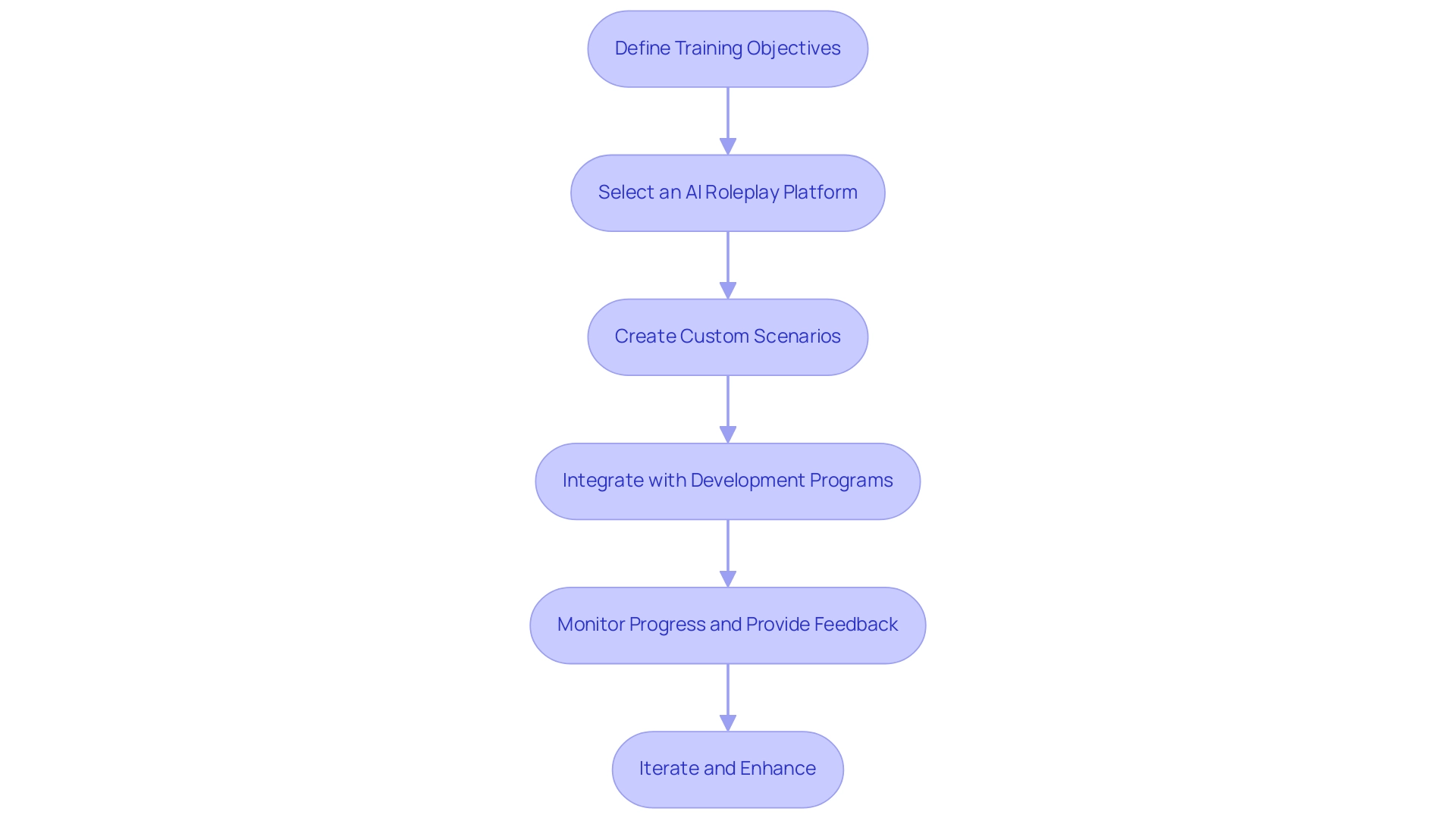
Benefits of Using AI Roleplays in Sales Onboarding
AI roleplays aren’t just trendy — they’re transformative. Here’s why:
- Higher engagement. Traditional training can feel like homework. AI roleplays? They’re immersive. Studies show they boost retention rates to 75%, compared to passive learning.
- Instant feedback: Reps don’t wait days for evaluations — they get actionable insights immediately. This instant correction accelerates improvement.
- Scalability. Training one rep is easy. Training 100? A nightmare — unless you use AI. AI roleplays scale seamlessly, making them perfect for fast-growing teams.
- Consistency. Every hire gets the same top-tier training, ensuring no one slips through the cracks.
- Risk-free learning. Mistakes in the real world cost deals. Mistakes in AI roleplays? They’re lessons.
These compelling advantages position AI roleplays as a transformative tool for organizations aiming to enhance their onboarding processes. As noted in the quote, “AI will most definitely continue to reshape coaching for sellers, providing an automated, personalized approach for leaders to better understand their reps and how to help them improve their performance in sales.”
A recent case study titled ‘Spiking Revenue by Leveraging AI in Sales Enablement’ further underscores this point, illustrating how enablement leaders are tapping into AI to develop essential soft skills and enhance team effectiveness. Furthermore, resources are accessible to help comprehend AI’s impact on business facilitation, emphasizing its role in developing stronger client relationships. The insights gained from AI-driven instructional methodologies not only enhance engagement but also cultivate stronger client relationships.
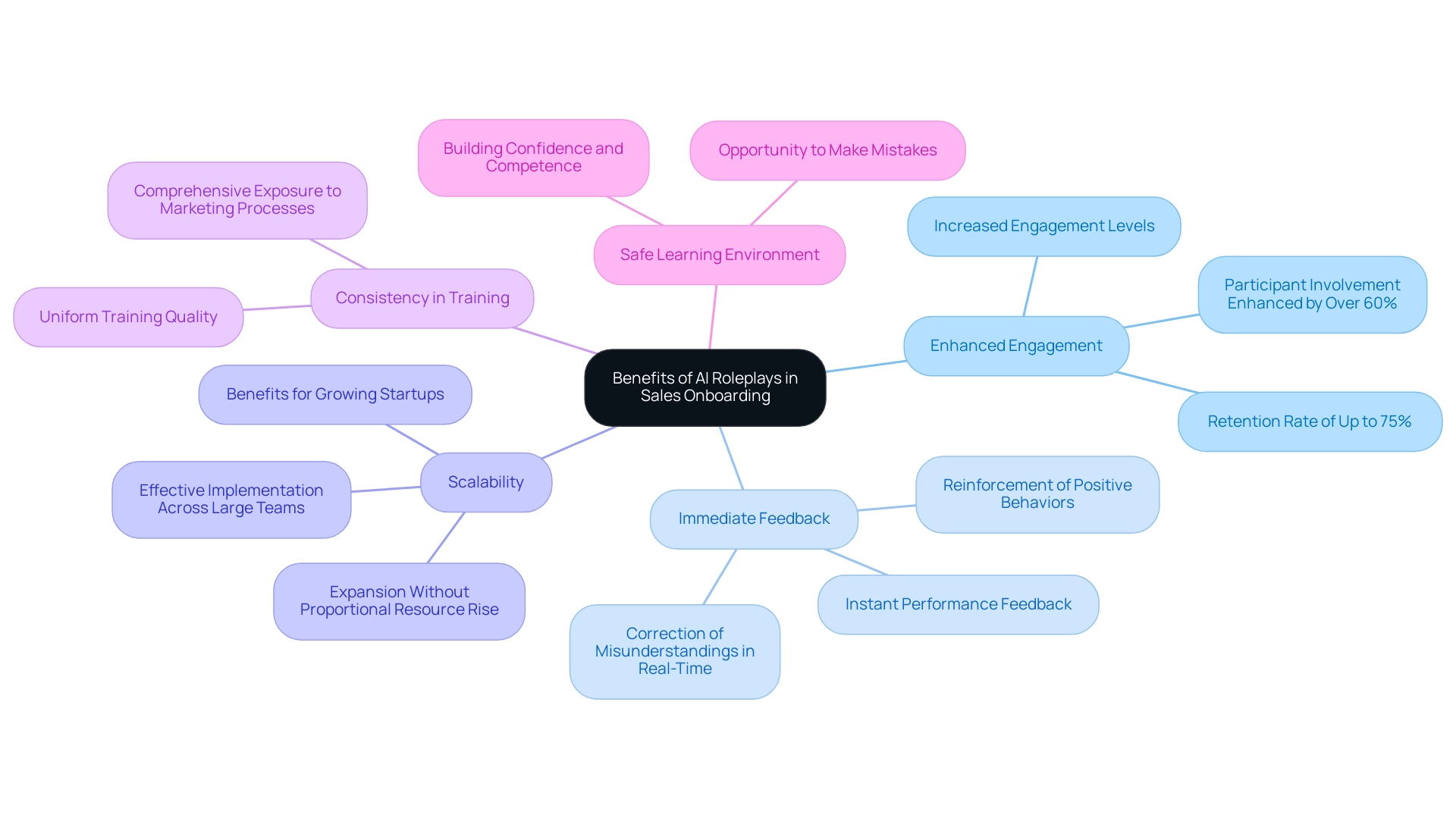
Measuring the effectiveness of AI roleplays
Don’t just assume your AI training works — measure it. Use these metrics:
- Performance scores: AI platforms track reps’ progress, pinpointing weaknesses and strengths. Companies using AI education tools saw a 30% increase in scores within one month.
- Revenue impact: Watch conversion rates and deal sizes after onboarding. Companies adopting AI roleplays reported a 25% jump in conversions post-training.
- Engagement analytics: Track completion rates and time spent on scenarios. High engagement = high retention.
- Feedback surveys: Don’t guess — ask. Surveys highlight what reps value and where training can improve.
- Retention tests: Quiz reps weeks later to check what stuck. Retention rates improved by 40% when simulations were part of onboarding.
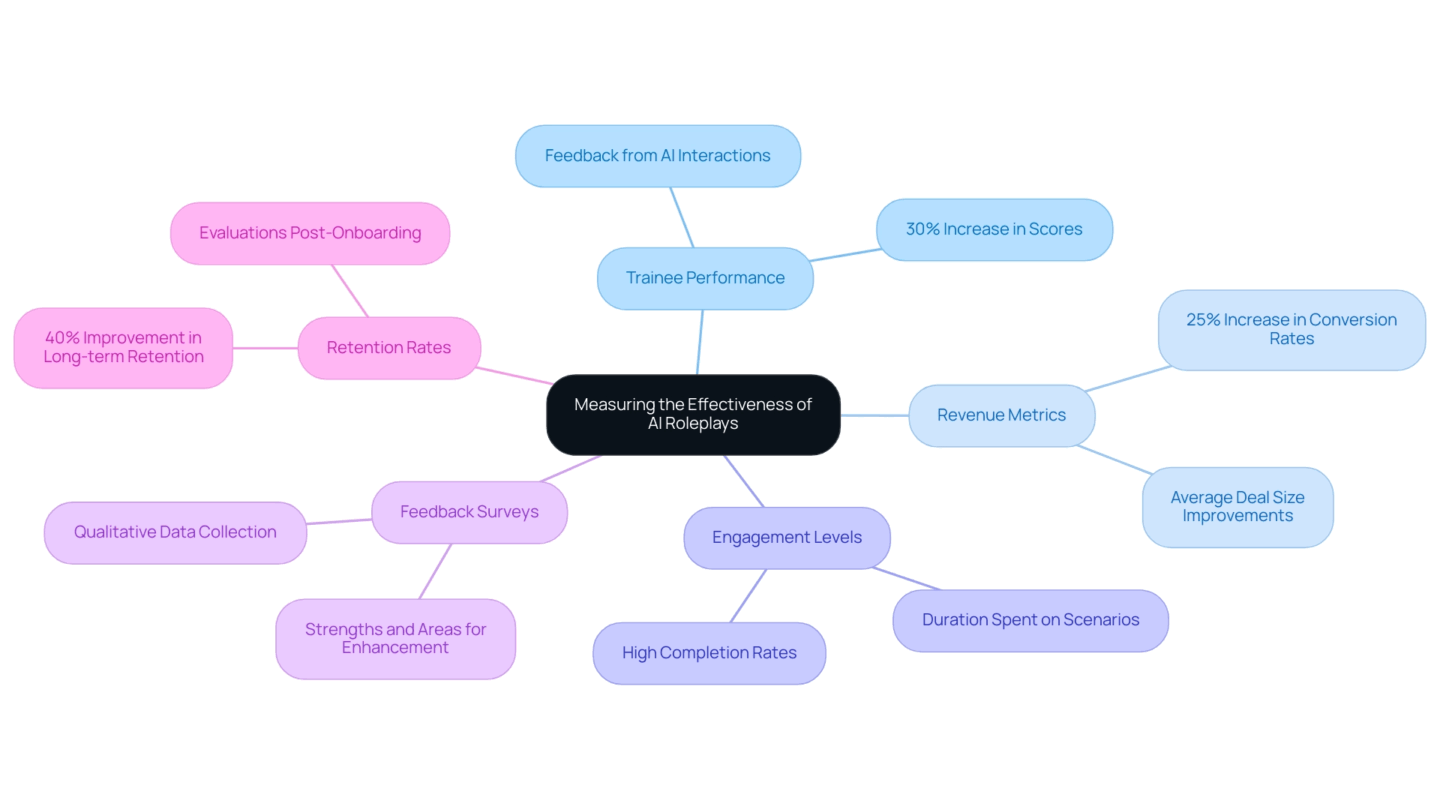
Best practices for implementing AI roleplays
Want to make AI roleplays work even harder for you? Follow these tips:
- Involve senior reps: Experienced salespeople know the game. Use their expertise to craft realistic scenarios.
- Update content regularly: Your market changes — so should your training. Stale roleplays lose impact.
- Foster collaboration: After simulations, host team debriefs. Reps learn as much from each other as they do from AI.
- Diversify scenarios: Mix it up. Reps need exposure to different customer personas, objections, and challenges.
- Promote a growth mindset: Roleplays aren’t tests; they’re opportunities. Make it clear that learning is the goal.
Ariel Hitron’s case study on AI-driven sales mentoring illustrates how these best practices can result in improved operational efficiency in commercial education. By adhering to these best practices, organizations can significantly enhance the efficacy of AI roleplays in their sales onboarding processes, ultimately leading to more successful outcomes in training and operational efficiency.
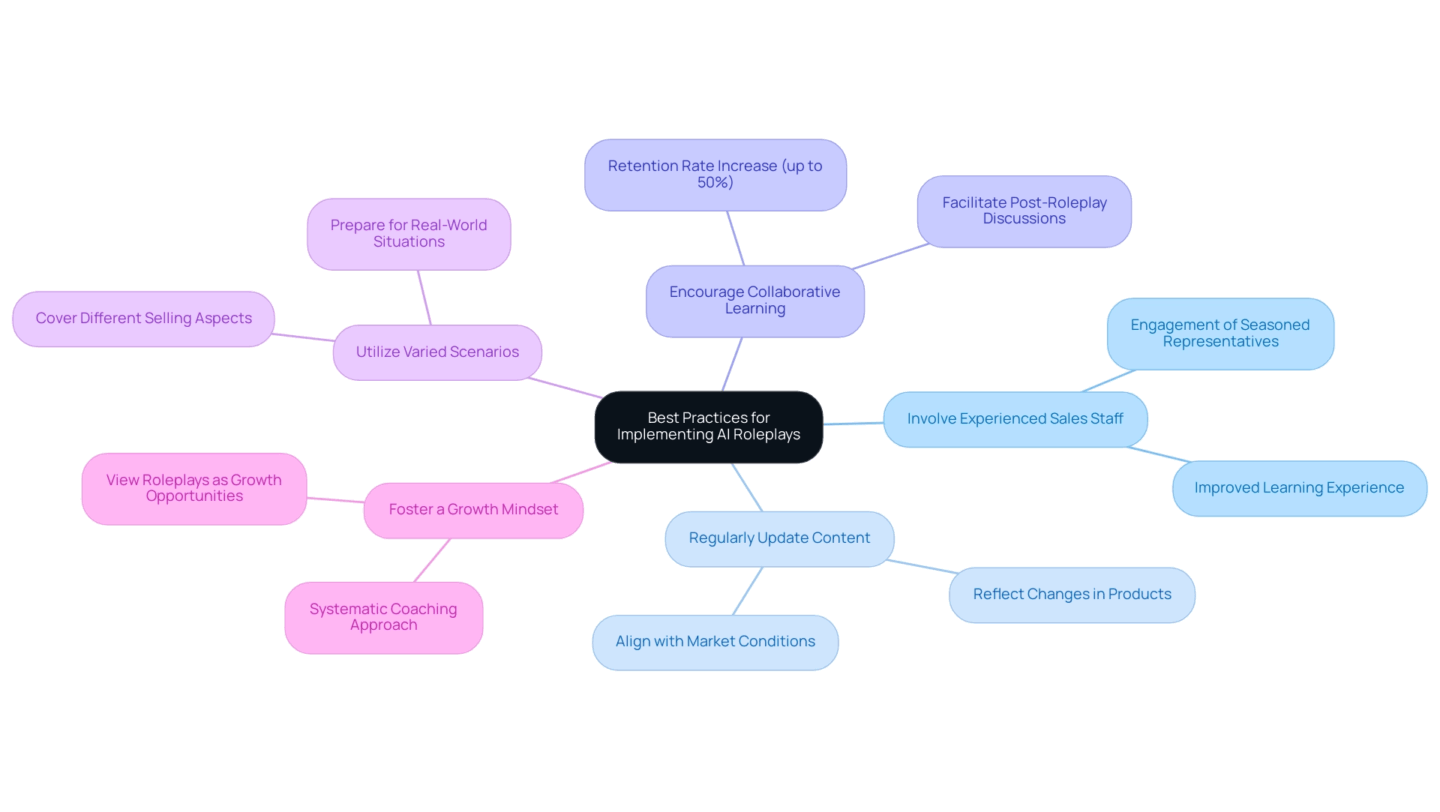
Conclusion
Sales onboarding is about more than teaching — it’s about preparing reps to succeed. AI roleplays provide the tools, environment, and insights reps need to build real skills. They’re not just a trend; they’re a necessity in today’s competitive market.
By following this guide — defining objectives, customizing scenarios, and measuring results — you can create a training program that doesn’t just onboard reps but turns them into top performers.
Dashly’s AI-driven solutions take this a step further, automating key processes like lead qualification, appointment booking, and nurturing to free up time for what matters most — building relationships and closing deals.




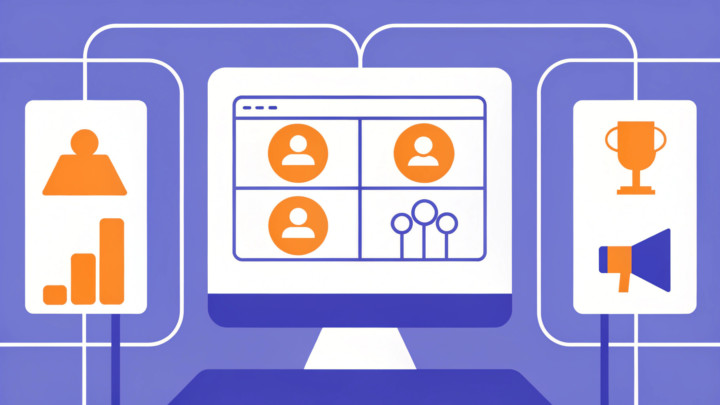

![What is sales enablement? Definite guide + Strategy + Tools for 2024 [CSO edition]](https://www.dashly.io/blog/wp-content/uploads/2021/03/sales-enablement-720x308.jpg)
![Autofunnel complete guide: what is it and how to design + [free checklist]](https://www.dashly.io/blog/wp-content/uploads/2020/02/funnel-720x297.gif)
